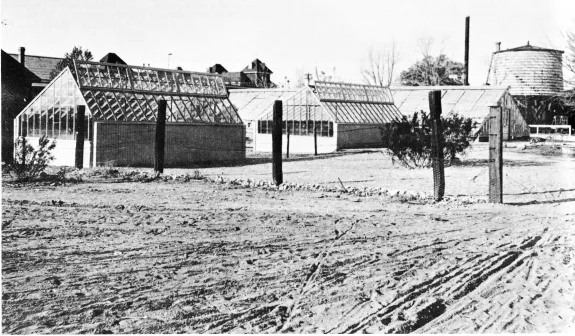About Us
Founded in agriculture, rooted in life.
In a rapidly changing world, we develop technology and sustainable practices to ensure that our agricultural and biological systems are resilient enough to support a growing population and foster economic opportunity - in Arizona and across the globe.
The United Nations projects that the world population will reach 9.8 billion by 2050. We aim to develop the systems and technologies that will ensure that we have enough food, water and energy to sustain that population. Through our undergraduate, graduate and research programs, we're creating practical, sustainable solutions to the challenges we face, today and in the future.
Our students receive a solid grounding in the principles of engineering and biological systems, with emphasis areas in controlled environment agriculture, water resources, data analytics, digital agriculture and human health. We combine technical expertise with hands-on experience in the lab and the field to prepare our students to tackle complex problems, like increasing the efficiency of crops, or developing renewable energy resources and reducing agricultural waste.
Our research and Cooperative Extension activities center innovation and sustainability. From taking a systems approach to understand and prevent the spread of pathogenic diseases, to optimizing growth conditions in controlled environments, to striking an equitable and efficient approach to water resources, our work impacts communities in Arizona and beyond.

Our history
We can trace our roots all the way back to the appointment of the university’s first irrigation engineer in 1891. Developing techniques that would make the most of Arizona’s limited water resources was essential to the state’s agricultural ambitions, and it formed the major focus of our work for the first half of the twentieth century.
As farming became increasingly mechanized, we expanded our research and instruction to include the implementation and management of agricultural machinery. We developed novel technology for selective harvesting, land imprinting, and agricultural animal welfare in hot climates. We also continued to be at the forefront of arid land water management, including groundwater hydrology, well construction, pumping plant equipment and irrigation methods, control and measurement.
The 1980s saw a nationwide increase in the use of biotechnology an agricultural tool, and our research and instruction broadened to include an emphasis on the application of engineering to biological systems. We continued our strong tradition of expertise in water resource management and conservation, but we also developed research emphases in precision agriculture, controlled environment agriculture, and biosensor technology.
Now in our second century, we continue to support agricultural and biosystems innovation in Arizona and across the world. From making the most of every drop of water, to empowering scientists and medical professionals with tools to detect and analyze pathogens on-site, to developing new sources of renewable bioenergy, to designing controlled environments that can support agriculture on Earth and in outer space, the technologies we develop here will enable us to feed and fuel a sustainable future.
